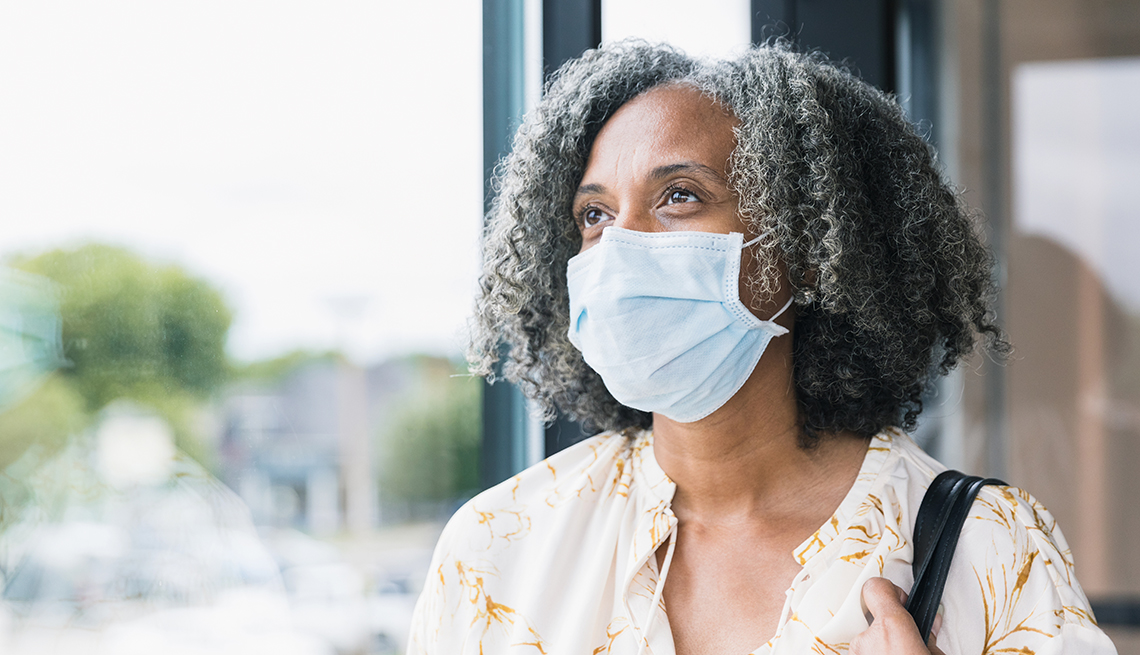Policy Fundamentals For COVID-19
As the COVID-19 pandemic has progressed, it has proved to be both a health crisis and a profound disruptor of social and economic life. The pandemic has highlighted the need for access to adequate and affordable health care, failures to protect the safety and well-being of people in long-term care facilities, and the challenges facing workers.
The COVID-19 pandemic is a public health crisis of unprecedented proportions and complexity. It has resulted in a profound loss of human life as well as immense social and economic disruption. The disruption continues to significantly affect the U.S. economy and threatens to destabilize the world’s interdependent economy in ways never before seen. Unemployment in the United States has risen to levels not seen in nearly 100 years, with older workers having lost jobs at a faster rate than others.
The full impact of the crisis on both the economy and the health of the population is not yet known, but most experts agree the crisis will reshape society in significant ways.
The direct health impact of the coronavirus has been greatest on people with underlying health conditions, people of color and older adults — particularly those living in residential care settings. The effect on both nursing home residents and staff has been devastating. While nursing home residents represent less than 1 percent of the population, in 2020 they made up over 40 percent of deaths.
Racial and ethnic disparities in infections, hospitalizations and deaths due to COVID-19 are not random; they are the result of long-term inequality caused by a lack of social, economic and political opportunities. While these disparities contribute to chronic health conditions, structural factors — where people live and work, their access to health care and healthy food, lack of information, and racial discrimination — also play a large role.
In light of these challenges and dynamics, the following steps should be taken.
- Long-term care facilities must take steps to ensure the health, safety and quality of life of residents and should be held accountable for failure to do so. Facilities must help minimize disease transmission through the use of personal protective equipment, physical distancing requirements, and regular testing of residents, staff, and visitors. They must provide families with greater transparency about COVID-19 cases within the facility, and about treatment and discharge decisions. Given the importance of social connections in maintaining health and quality of life, they must actively combat social isolation by meeting federal guidelines so that in-person visitation can safely happen whenever possible and providing all residents with regular opportunities to virtually visit with their loved ones, particularly when in-person visits are not permitted. Long-term care facilities must be properly staffed and held accountable when residents are harmed, neglected, or abused.
- Policymakers must ensure access to affordable and high-quality health care for all and take meaningful steps to eliminate health disparities. It is essential that everyone has easy and safe access to testing and that financial barriers to treatment and care are removed, particularly during a public health crisis. People without health insurance and those in financial distress may have trouble paying for COVID-19 testing, treatment or vaccines and thus may be reluctant to get necessary services. With so many families having lost health insurance along with their jobs, providing access through other means is essential.
What’s more, the pandemic brought to the forefront the need for immediate and meaningful action to address racial and ethnic health disparities in this country. Black and Latino people are more likely than others to experience severe illness and death from COVID-19. And they face additional barriers to receiving testing, treatment and high-quality care. It is imperative to address lack of health coverage and provider shortages in underserved communities, including making concerted efforts to reduce bias in the type and quality of care that people in these communities receive.
- Policymakers and employers must better support workers, who need flexible and safe work environments and strong supports if they lose a job. The public health measures required to slow the spread of COVID-19 (that is, closures and stay-at-home orders) have contributed to widespread unemployment, with job losses hitting older workers particularly hard. Displaced workers need a stronger unemployment insurance system that both pays robust benefits and provides access to effective training and job counseling programs. Paid sick leave and family leave, as well as flexible work arrangements, where possible, are more important than ever. Workers need equipment and protocols to keep them safe from infection.
- Policymakers must support access to high-speed internet. Even before the pandemic, many experts saw digital access as a universal necessity in order to engage effectively in nearly all aspects of life, including with employers, the government, educational institutions and social circles. The importance of digital access has only increased as people try to minimize their exposure to possible infection. And critically during a pandemic, high-speed connections enable individuals, particularly older ones, to continue to receive necessary health care services and to see their clinicians through the use of telehealth from the safety of their home.
- Both the public and private sectors must act now to address current needs and to prepare for future public health crises. The health system must increase capacity in order to better handle large influxes of critically ill patients. An adequate supply of personal protective equipment must be available for medical professionals and other essential workers, as well as the general public. Contact tracing protocols, including those assisted by technology, should be developed, vetted and ready to deploy, with standards in place to protect the privacy of individuals.

